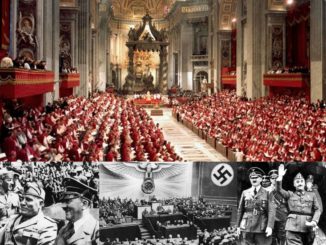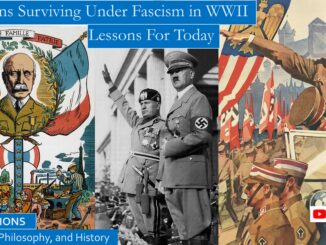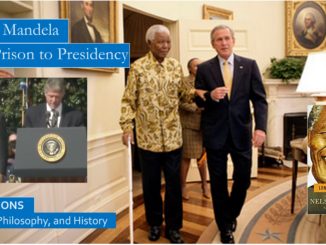You need a strong moral compass to do what is right. Like Trump, Mussolini did not have a strong, he did not even have a weak moral compass, his compass had no morals at all. Shortly before the start of World War II Mussolini started looking up to Hitler, Mussolini visited Berlin, Hitler visited Rome, and Mussolini started to value the values of Nazi Germany over the values of the Catholic Church.
Starting in 1938, the Fascist government under Mussolini started to implement many of the same anti-Semitic race laws that had earlier been passed in Nazi Germany. In the years before 1938 the Catholic Church prospered in its partnership with Mussolini. In the remaining years of Mussolini’s rule these relations were more and more strained. The Pope had started hearing disturbing reports from his churches in Germany and across Europe, disturbing reports on the fate of the Jews and the disabled and dissenters, priests, and believers.
Pope Pius XI started to have regrets about his compromises with Mussolini, Pope Pius XI was elderly and in poor health, Pope Pius XI started to worry about his salvation. […]




